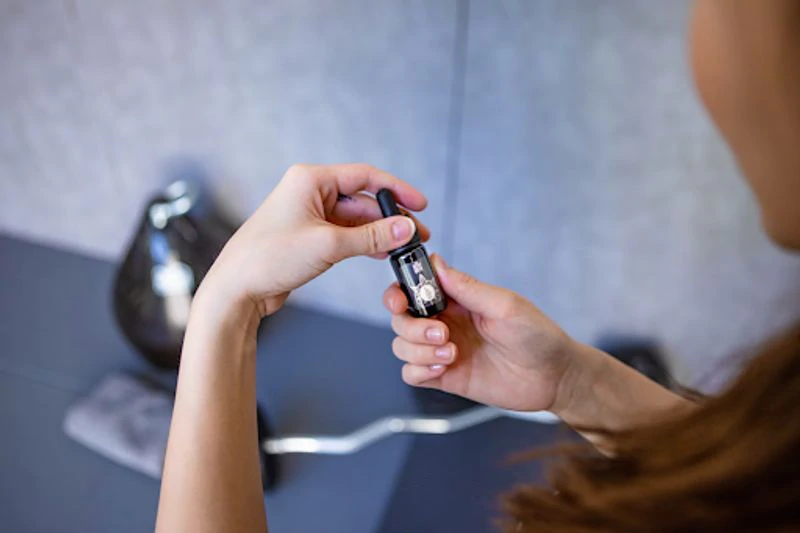
How To Secure Your CBD Customer’s Loyalty
When it comes to CBD, Britons have consumed their fair share. The UK is the world’s second largest market for cannabidiol. One in ten are already consuming the cannabinoid in some form, while 28 percent would consider using it.
And people are only bound to get curiouser and curiouser. The European market alone is expected to grow with a compound annual growth rate (CAGR) of 40 percent from 2022 to 2029. Even slower adopters like Ireland are slowly coming around.
Trading Curiosity For Trust
But this industry can’t survive on curiosity alone. Today the trendiness of CBD is a rising tide that’s lifting all brands. Tomorrow, however, businesses will need to find a more stable foundation to stay afloat.
The nature of CBD already provides brands with a valuable way to build equity beyond novelty. One of the biggest reasons people hesitate to try CBD is simply because they don’t trust the industry yet.
And the pause is warranted. A sobering study from the Centre of Medical Cannabis has found that up to 62 percent of UK high street CBD products did not contain the amount of the compound advertised on the label. Some contained THC, the substance that gives cannabis its hallucinogenic properties. It’s also completely illegal in the UK.
What It Says On The Tin
Interest in CBD products may be higher than ever before, but trust in brands is still shaky. Flashy designs and trendy marketing can convince someone to buy once, but customer support and transparency is what will win loyalty and repeat sales.
CBD brands can start building that trust from the packaging up. Wary of brands playing loose and fast with facts, cautious customers will prefer businesses who can support claims and make test results available. Some brands have responded by adding QR codes to the packaging that link to lab results.
If you’re a reseller, make sure you only buy from reputable brands or white label product manufacturers. Colorado-based Bluebird Botanicals allows customers to view Certificates of Analysis on their website.“We have heard from customers that that’s one of the reasons they buy from us. Because they know that when they buy our products, they are going to know exactly what’s in them and what’s not in them,” says Michael Harinen, the company’s Chief Brand Officer.
Make Knowledge Available
CBD, despite its increasing availability in numerous forms, is not easy to get into. First time users can easily get lost in the terminology and proper use. What are isolates and terpenes? What’s the difference between sublingual and oral ingestion? Is vaping safe?
The answers to these questions can be found with research, but not readily. It can also be tricky to separate truly informative sources from snake oil salesmen.
Brands can build loyalty by reaching out where customers are grasping. Origin’40, a UK-based CBD retailer, creates that connection by stationing trained CBD experts in their stores. “I saw a massive gap to bring a consultative retail experience to the sector,” says managing director Marcus Fox.
Train Your Salespeople
Most of the time, when you go into a shop, you already know what you want. The only thing you’ll probably ask a store assistant is which aisle or shelf you can find it in. With CBD stores, that’s not the case. People don’t know their brands yet. Some spend up to half an hour just talking to assistants.
In-store experts need to be prepared for this appetite for information. The last thing you want is for your brand to appear ill-informed, especially when some customers are sceptical to a degree.
And brands should make sure that these are really teaching moments happening inside stores, instead of veiled attempts at pushing the product. Honesty is what will secure loyalty at the end of the day–anything less can permanently turn customers away from your brand.
Make Information Accessible
Not all brands will have the advantage of having a physical storefront like Origin’40. The vast majority of CBD sellers are online only, but that doesn’t mean a more personal, one-to-one approach is no longer an option.
If the past couple of years has taught us anything, it’s that teleconsultation works. And it’s a lot more convenient for customers who are only beginning to shop around for CBD. Sellers can extend the same assistance as in-store experts across the web using live chat options. Brands can encourage visitors to schedule consultations at their convenience.
Once people do reach out, make sure to respond quickly. CBD is a fast-moving market. If you’re not answering their questions, someone else will.
Allow For Self-Service
There’s still a lot of trepidation surrounding CBD use. Search for “Can CBD…” on Google and some of the top auto-fill suggestions will be “...cause seizures”, “...cause psychosis”, or “...cause constipation”. Expect that more people will be looking for expert advice than with your average product.
However, that doesn’t mean you can leave your FAQ pages scant. The majority of consumers prefer to scour websites for information first, instead of going through direct channels like SMS or live chat.
Brands haven’t done a very good job of giving them what they’re looking for. Less than one third of companies offer self-service options. Informative resources can help satisfy potential customers until they’re ready to reach out to you directly.
CBD is a wonderful product that has the potential to be beneficial to many millions of people. But the burden of proof lies with sellers. In a market presently plagued by a lack of accurate information and transparency, customer loyalty will go to brands who can educate, provide honest assistance, and make documentation available.
